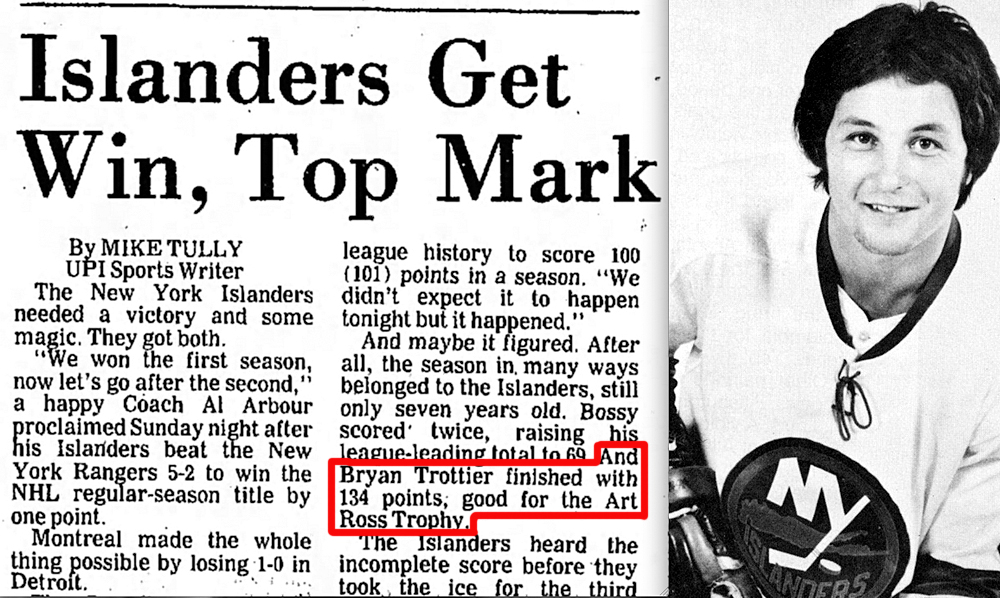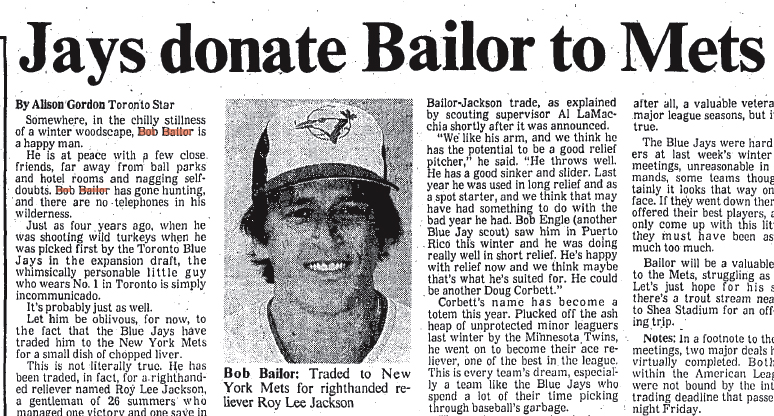Back in February, while I will still hard at work on Art Ross: The Hockey Legend Who Built the Bruins, Art Ross III (who, along with his wife and his sisters, have all been great supporters – and great helps – on the project) sent me a few clippings from Boston Bruins programs he found in a family scrapbook. This story below appeared almost 44 years ago, on November 19, 1961, just over seven years after Art Ross had retired from the Bruins. Several bits and pieces from this article made their way into my biography … but I particularly liked where Henry McKenna noted: “So you can see that trying to write about Art Ross in a single chapter is virtually impossible. A book perhaps, but hardly a single article.”
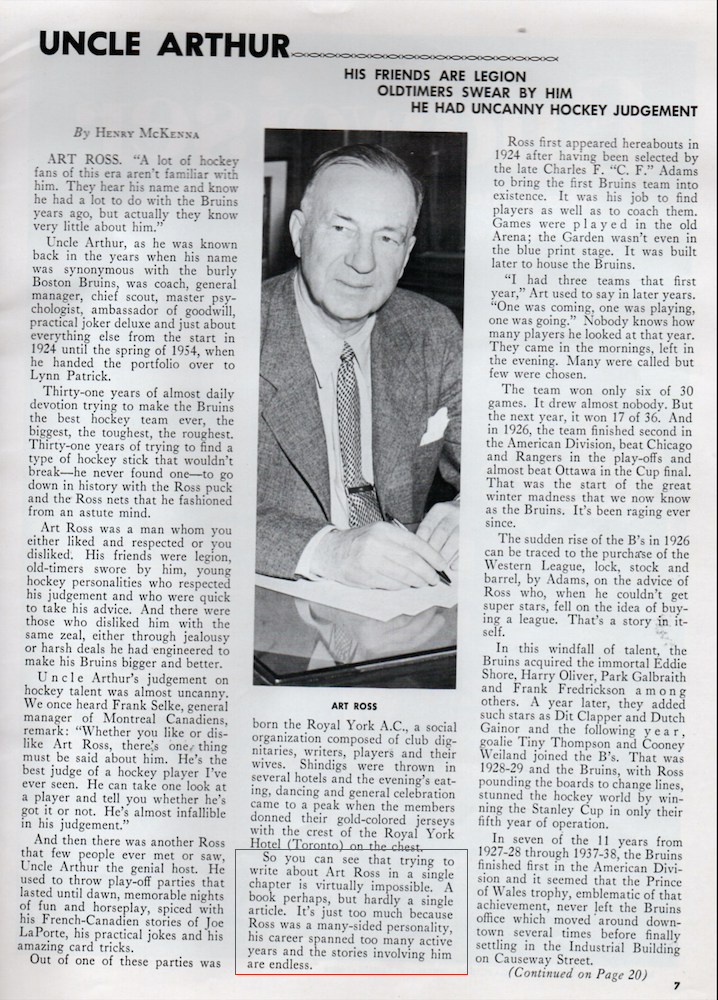
So, why has it taken so long for somebody to write this book? I offer a few thoughts on that, as well as why I wanted to be the one to write it, on the web site of my publisher, Dundurn. Rather than write it all again, you can have a look here if you’re interested.
As many of you know, I’ve been out and about lately promoting the book. We had a launch in Toronto last month, and another a few days ago in Owen Sound (where the local Sun Times was the first to review the book). Barbara and I were also in Maine a couple of weeks ago for a wonderful Ross family long weekend, and then we visited Boston, where I appeared on the pregame show of a Bruins broadcast, caught up with some of the Bruins staff who had helped me along the way, and chatted with a couple of Bruins reporters.
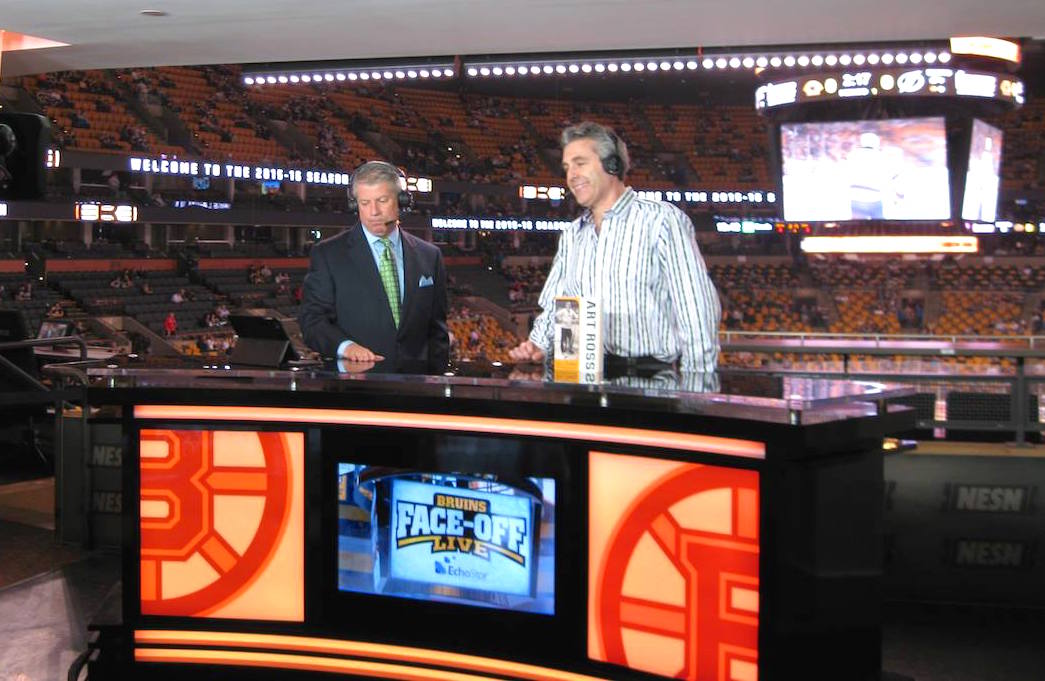
On the air with NESN’s Dale Arnold
If you’d like to see the interview I did, you have to be on Facebook, but this link should take you there. (The part with me starts 20 seconds in.) Otherwise, you can listen to the radio interview I did here in Owen Sound. In addition, there has been some great coverage from prolific American hockey writer and broadcaster Stan Fischler, and, most recently, this review from the Winnipeg Free Press. Upcoming is a radio interview with Dave Fisher on CJAD in Montreal. (Montreal friends, I’ll try to keep you posted on that one.)
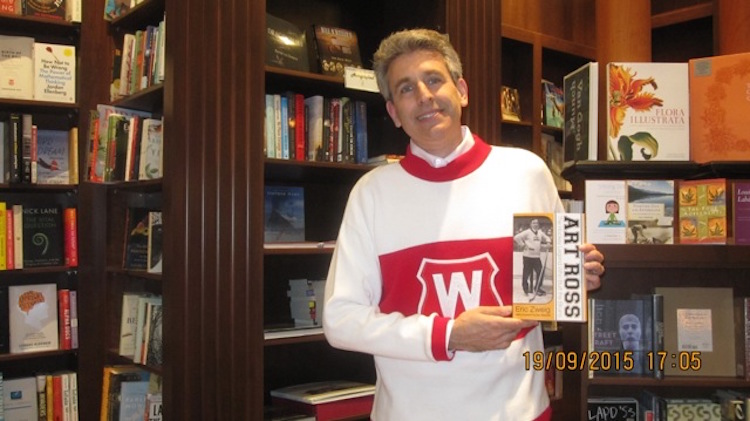
At Ben McNally Books in Toronto, wearing a Montreal Wanderers sweater loaned to me by
Society for International Hockey Research president Jean-Patrice Martel. Art Ross spent most of his playing career with the Wanderers.
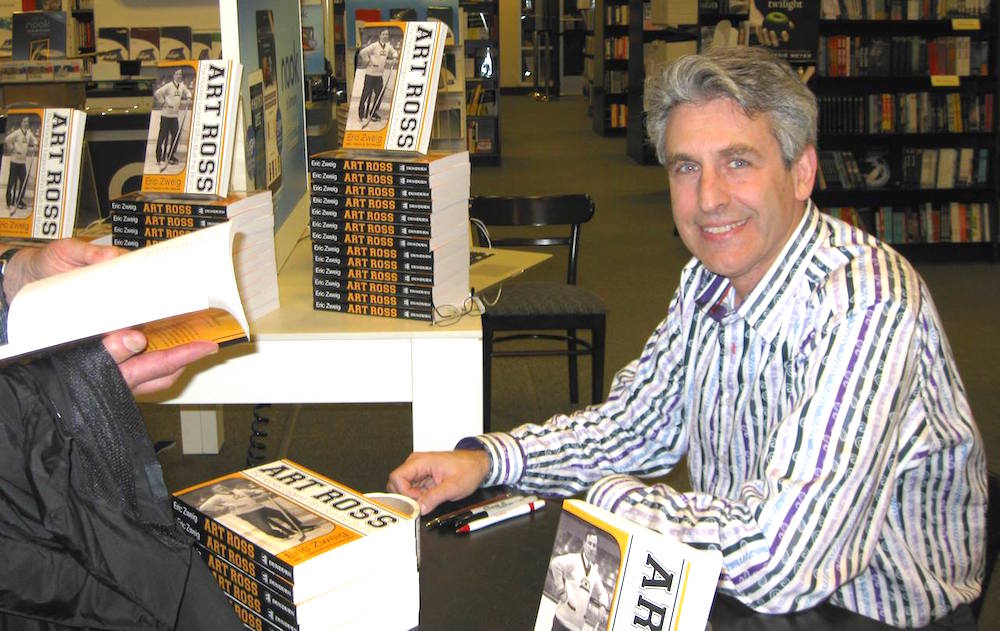
Let’s just say the Barnes and Noble at the Prudential Center in Boston
has a lot of signed copies to sell
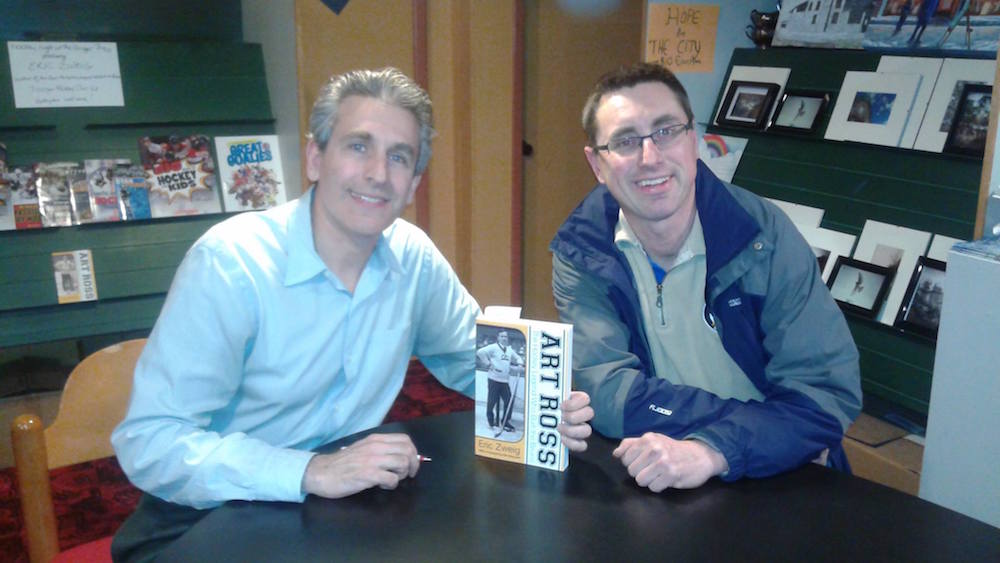
Signing for fellow SIHR member Lorne Bell at the Owen Sound launch at The Ginger Press
Oh, and by the way, if you’ve already read the book and if you liked it, feel free to offer comments and reviews on web sites such as Chapters/Indigo, Amazon, Goodreads, or Barnes and Noble. I don’t honestly know if it makes much difference, but it couldn’t hurt!

